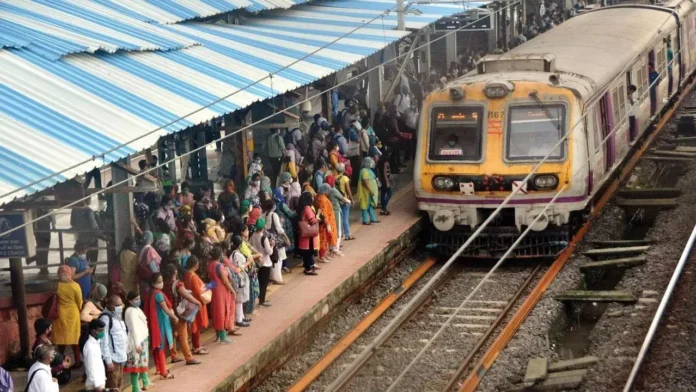As the monsoon clouds gather over Mumbai, the city braces itself for yet another bout of heavy rainfall. With the onset of the rainy season, Mumbai’s lifeline, its local train network, often finds itself at the mercy of nature’s fury. This year is no exception, as recent downpours have led to widespread disruptions in both local train and metro services, throwing the daily commute of millions of Mumbaikars into disarray.
The heavy rainfall, coupled with waterlogging in several parts of the city, has severely impacted the functioning of Mumbai’s transport infrastructure. Local train services, which ferry millions of passengers across the city every day, have been hit particularly hard, with delays and cancellations becoming the norm rather than the exception. Commuters stranded on rain-soaked platforms and overcrowded trains have been forced to endure hours of discomfort and uncertainty as they navigate their way through the chaos.
Adding to the woes of commuters, the city’s fledgling metro network has also faced disruptions due to inclement weather. The Mumbai Metro, which was envisioned as a solution to the city’s perennial traffic woes, has struggled to cope with the challenges posed by heavy rainfall. Technical glitches and waterlogging at metro stations have led to frequent delays and cancellations, leaving passengers frustrated and stranded.
The impact of the rain-induced chaos extends beyond just inconvenience for commuters; it also has significant economic repercussions. With workers unable to reach their workplaces on time, businesses suffer losses due to disrupted operations and productivity. The city’s vibrant street vendors and small businesses, which rely heavily on foot traffic, also feel the pinch as customers stay away to avoid the treacherous conditions outside.
Moreover, the heavy rainfall and resulting waterlogging exacerbate the city’s perennial problem of flooding, especially in low-lying areas and slums. Residents of these areas are often the hardest hit by the monsoon deluge, facing the risk of waterborne diseases and damage to their homes and belongings. Despite the efforts of civic authorities to mitigate the impact of flooding through measures such as desilting drains and installing pumping stations, the magnitude of the challenge remains daunting.
In the face of such adversity, the resilience of Mumbaikars shines through as they come together to support each other in times of need. From volunteer groups distributing food and essentials to stranded commuters to civic activists raising awareness about the need for better urban planning, the spirit of solidarity and community is alive and well in the city.
However, addressing the systemic issues underlying Mumbai’s monsoon woes requires more than just ad-hoc solutions and temporary fixes. It demands a holistic approach that prioritizes sustainable urban planning, investment in resilient infrastructure, and proactive measures to mitigate the impact of climate change. From improving drainage systems to enhancing public transportation networks, there is much that can be done to build a more resilient Mumbai that can weather the storm, quite literally.
In addition, the recent disruptions in Mumbai’s local train and metro services serve as a stark reminder of the city’s vulnerability to the vagaries of the monsoon. While Mumbaikars have shown remarkable resilience in the face of adversity, addressing the root causes of the problem requires concerted efforts on the part of both policymakers and citizens. Only by working together can we build a Mumbai that is better prepared to withstand the challenges posed by heavy rainfall and emerge stronger in the face of adversity.

